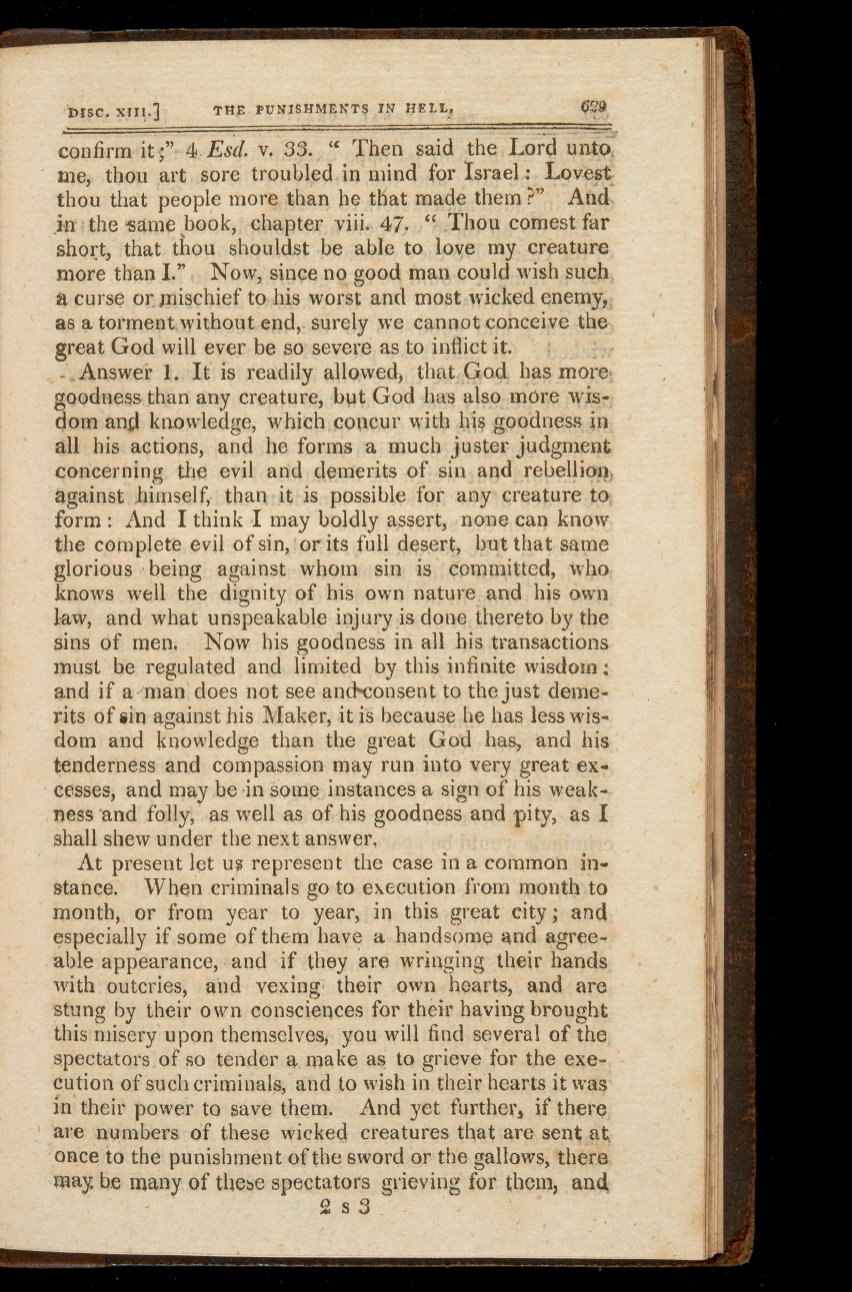

b[sC.
XIII.
THE PUNISHMENT$ IN
HELL.
69
confirm it
;
4.Escl.
v.
33.
" Then
said
the
Lord untó
me,
thou
art
sore
troubled
in
mind for
Israel
:
Lovest
thou that
people more
than
be
that
made them
?"
And
ins
the
same book,
chapter
viii.
47.
"
Thou
comest
far
short, that thou shouldst
be able to love
my
creature
more than
I." Now, since no good
man
could
wish
such
a
curse
or mischief
to
his
worst and most
wicked enemy,
as
a
torment
without
end, surely
we
cannot
conceive
the
great God
will
ever be
so
severe as to inflict it.
Answer
1.
It
is
readily
allowed,
that
God. has more
goodness than any creature,
but
God
has also
More
wis
dom anti
knowledge,
which
concur
with his
goodness in
all
his
actions,
and
he forms
a
much
juster
judgment
concerning
the
evil
and demerits
of
sin
and rebellion,
against himself, than it
is
possible
for any creature
to
form
:
And I
think
I
may
boldly assert,
none
can know
the
complete
evil
of
sin,
or
its
full
desert,
but
that
same
glorious being against whom
sin
is
committed,
who
knows well
the dignity
of
his own
nature
and
his own
law,
and what unspeakable injury
is
done
thereto
by
the
sins
of
men.
Now
his
goodness
in all his
transactions
must
be
regulated
and limited
by
this
infinite
wisdom
and
if
aman
does
not
see
and
-
consent
to
the
just
deme-
rits
of
sin
against
his
Maker, it
is
because
he
has
less wis-
dom
and
knowledge
than
the great
God
has,
and his
tenderness and compassion
may
run into
very
great ex-
cesses,
and
may be in some
instances a
sign
of
his
weak-
ness
and
folly,
as well as
of
his
goodness and pity, as
I
shall shew
under
the next answer.
At
present let
u$
represent
the case
in
a common
in-
stance.
When
criminals
go
to
execution
from
month to
month,
or
from
year
to
year,
in
this
great
city; and
especially
if
some
of
them have
a
handsome and
agree-
able appearance, and
if
they
are
wringing
their hands
with outcries,
and
vexing their
own
hearts, and
are
stung
by
their
own consciences for
their
having
brought
this
misery
upon
themselves, you
will find
several
of
the
spectators
of
so
tender
a make
as to
grieve for
the exe-
cution
of
such criminals,
and to
wish in
their hearts it
was
in
their
power
to
save them.
And yet
further,
if
there
are
numbers
of
these
wicked
creatures
that
are sent
at
once
to
the
punishment of
the sword or the
gallows,
there
may.
be
many
of
these
spectators
grieving for them,
an4
ßs3

















